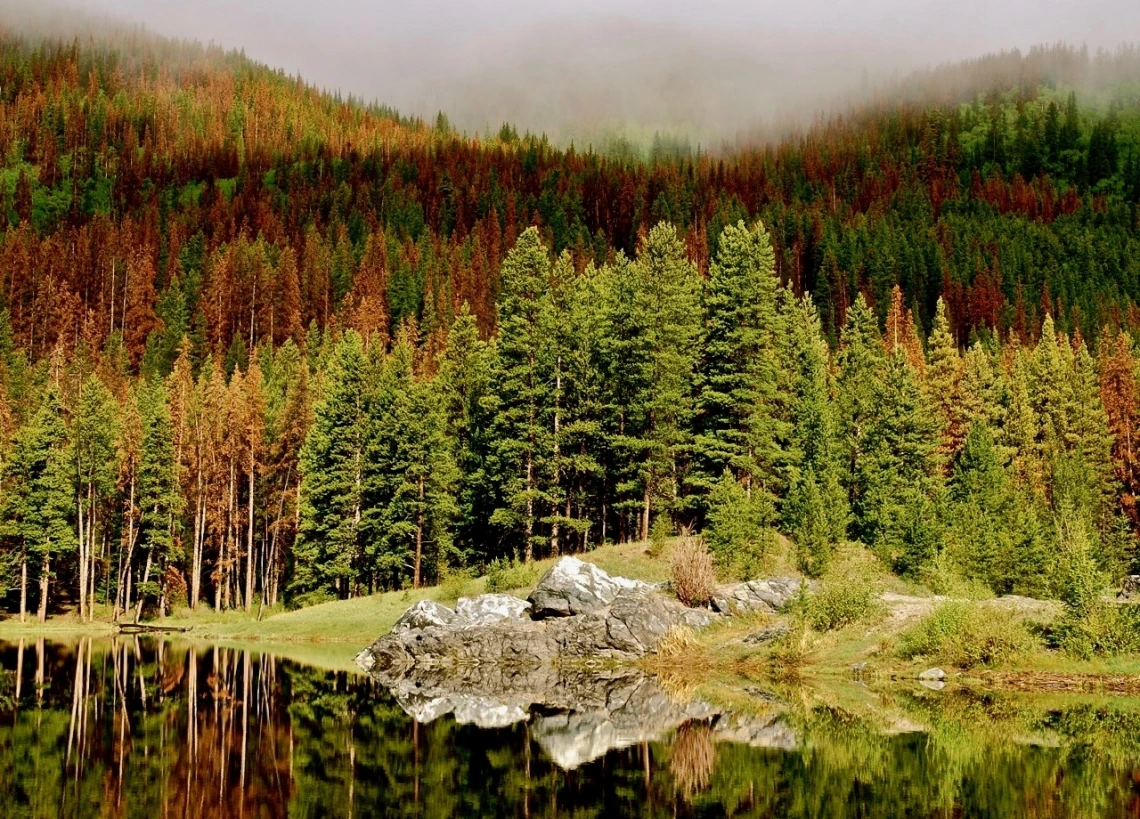UArizona's Prof. Dave Breshears Featured in Inside Climate News Article on Heat and Forests
Prof. Dave Breshears is among a group of researchers working to understand how climate change and megadroughts are impacting forest ecosystems and what we can do to respond.

Photo credit: Bob Berwyn
Global warming has contributed to the thinning of forest canopies for the last 20 years. According to a recent study, by 2040 forests will only be able to absorb half of the carbon emissions they are currently taking in. This means that forests could accelerate climate change rather than reduce its negative effects. Increased temperatures can reduce photosynthesis and could increase the amount of carbon emitted by trees. Meaning carbon sinks, which capture carbon emitted by human activity, can turn into sources of carbon in the next 20 to 30 years.
Many scientists worry the time ecosystems bought us by absorbing carbon has been wasted and there will be less time to adapt to a new normal. The implications of this temperature rise will not only affect forests that have acted as carbon sinks, but also food production. The first to be hit by these temperature plateaus that stop photosynthesis will be tropical and boreal rainforests.
Jason Field and Dave Breshears, Regents' Professor and CCASS Advisory Team Member, recently published a study providing solutions including forest management practices. This study has opened up the conversation regarding forest management and how to adapt to hotter and longer droughts. Saving valuable individual trees that have resilient genetic make-up have been among the solutions explored by researchers. It is projected that many areas are not going to make it through these droughts, so the solutions scientists are looking at focus on saving smaller areas in hopes that smaller forests will spread with the help of a cooler climate.

